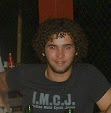My first contact with Closer to Truth was through an amazing documentary that it's worth to mention separately from their typical interviews. It is a very exhaustive and in-depth exposition of the main difficulties facing philosophers, scientists and theologists dealing with the idea of free will. Big Questions in Free Will (2016) shows and elaborates on hardcore conundrums such as: Do we really have free will or is it an illusion? Are moral judgement and legal responsability strongly linked to free will? Does the possible existence of god perturb our idea of free will? And much more... It is very informative, on one side, to follow philosophers struggling to develop and explain logical arguments that should solve these issues, and on the other, to watch scientists designing and performing very cleaver experiments to test some of the key hypotheses behind those issues. Keeping up with the philosophical and the scientific research is not only interesting, it is actually a great intellectual exercise, which I recommend even if you don't care too much about free will.
If you have any strong believes about free will, now they will be weaken. If you have always thought it was a minor abstract question, you will probably reconsider. If you think you have a real grasp at the notion of free will at all, you will see how naive you've been all along.
Enjoy!
If you have any strong believes about free will, now they will be weaken. If you have always thought it was a minor abstract question, you will probably reconsider. If you think you have a real grasp at the notion of free will at all, you will see how naive you've been all along.
Enjoy!

Very interesting but there is still something unsatisfactory about this discussion. I was trying to remember a comment about free will I heard in a interview, but I couldn't find it. I'll mention it if I find it!
ReplyDeleteYou can find more on free will in the Firing Line (http://pingpongpongpong.blogspot.it/2017/03/firing-line-thomas-sowell-with-william.html) entitled "The case against freedom", a debate between William F. Buckley Jr., B.F. Skinner and D. MacCrimmon MacKay (https://youtu.be/1DMyDYgxFlo).
DeleteThanks!!!
Delete